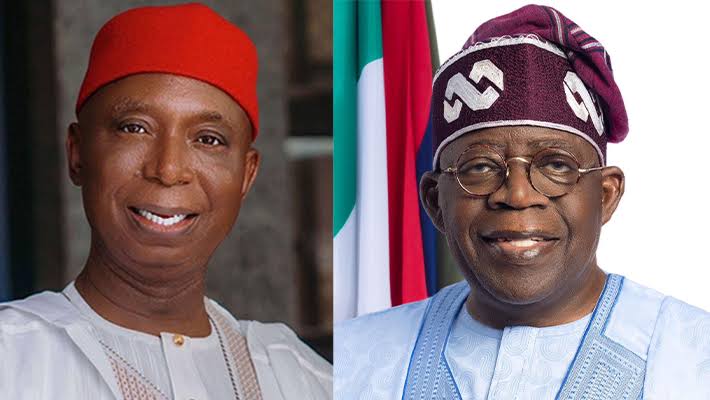
The Senator representing Delta North in the National Assembly, Ned Nwoko, has urged President Bola Tinubu to replace the Ministry of Humanitarian Affairs with a National Social Security Agency.
In an open letter titled, “Reimagining Nigeria’s Social Safety Net: A Call to Replace the Ministry of Humanitarian Affairs with a National Social Security Agency Under the Office of the President.’’
Nwoko emphasized that this new agency, under the Office of the President, would better safeguard the rights and dignity of Nigeria’s most vulnerable citizens.
Nwoko argued that the current Ministry of Humanitarian Affairs, while well-intentioned, has failed to address the root causes of poverty and instead perpetuates a cycle of dependency.
He stressed that the creation of a National Social Security Agency would align Nigeria with global standards and provide a more effective and sustainable solution to the country’s socio-economic challenges.
He emphasized that social security should be recognized as a fundamental right, not an act of charity, and that the new agency would empower citizens rather than treat them as dependents.
Nwoko highlighted the urgency of addressing the pervasive issues of poverty and societal decay in Nigeria.
He called on President Tinubu to reassess the current approach to social welfare and consider the establishment of the National Social Security Agency to replace the Ministry of Humanitarian Affairs.
This agency, Nwoko suggested, would target the needs of vulnerable populations, including the elderly, disabled, widows, orphans, and the unemployed.
The letter partly read, “The cries of hunger, now echoing in the streets, represent far more than just a lack of food.
“They are the voices of millions of Nigerians who have been stripped of their dignity, left to survive in a system that has failed them repeatedly.
“These are not merely protests; they are a collective outcry against the indignity of living without the certainty of basic needs, without hope for a better future.
“This ministry, while well-intentioned, has proven to be a temporary bandage on a deep and festering wound. This approach does not respect the inherent dignity of our people. It treats them as dependents rather than as citizens with rights.
“Social security should be recognised not as an act of benevolence, but as a fundamental right. It is time to rethink our strategy and implement a transformative change that will pave the way for a more equitable and sustainable future for all Nigerians.
“I therefore respectfully urge you to consider establishing a National Social Security Agency, directly under the Office of the President, to replace the Ministry of Humanitarian Affairs.
“This agency would target and address the needs of the vulnerable population through a more efficient and sustainable system, one that truly empowers rather than pities, one that upholds the dignity and respect every Nigerian deserves.
“A system that ensures citizens feel truly secure, confident that no matter the circumstances, their basic needs for food and shelter will be met.
“A system that will provide the government with the necessary space to focus on other critical aspects of governance, free from unprovoked backlash due to perceived neglect or lack of support.’
“Our disabled who are daily fighting for a life of dignity in a society that overlooks their needs, our widows and orphans, left without a breadwinner and struggling to survive, the unemployed who seek work but find only closed doors.
“Those who have suffered unimaginable losses through accidents, violence, abandonment and are now forgotten by the system that should protect them.
“These are the faces of Nigeria’s vulnerable population, and it is our moral obligation to ensure that they are not just seen but also supported with the dignity and respect they deserve.’’
Nwoko further emphasized that the country’s current approach to poverty alleviation was not working, necessitating his call for a replacement of the Ministry of Humanitarian Affairs.
“The fight against poverty has been a central focus of development planning in Nigeria since independence. Various governments have introduced numerous poverty alleviation programs over the years.
“Yet, the grim reality is that these interventions have largely failed to deliver meaningful and lasting results. The statistics paint a sobering picture, as poverty rate is approximately 40 per cent of Nigerians living below the poverty line.
“Unemployment rate stands at around 33 per cent with many Nigerians, especially youth, unable to secure stable employment, while Persons Living with Disability are more than 25 million
“Internally Displaced Persons (IDPs) are over 3 million Nigerians,’’ he added.


